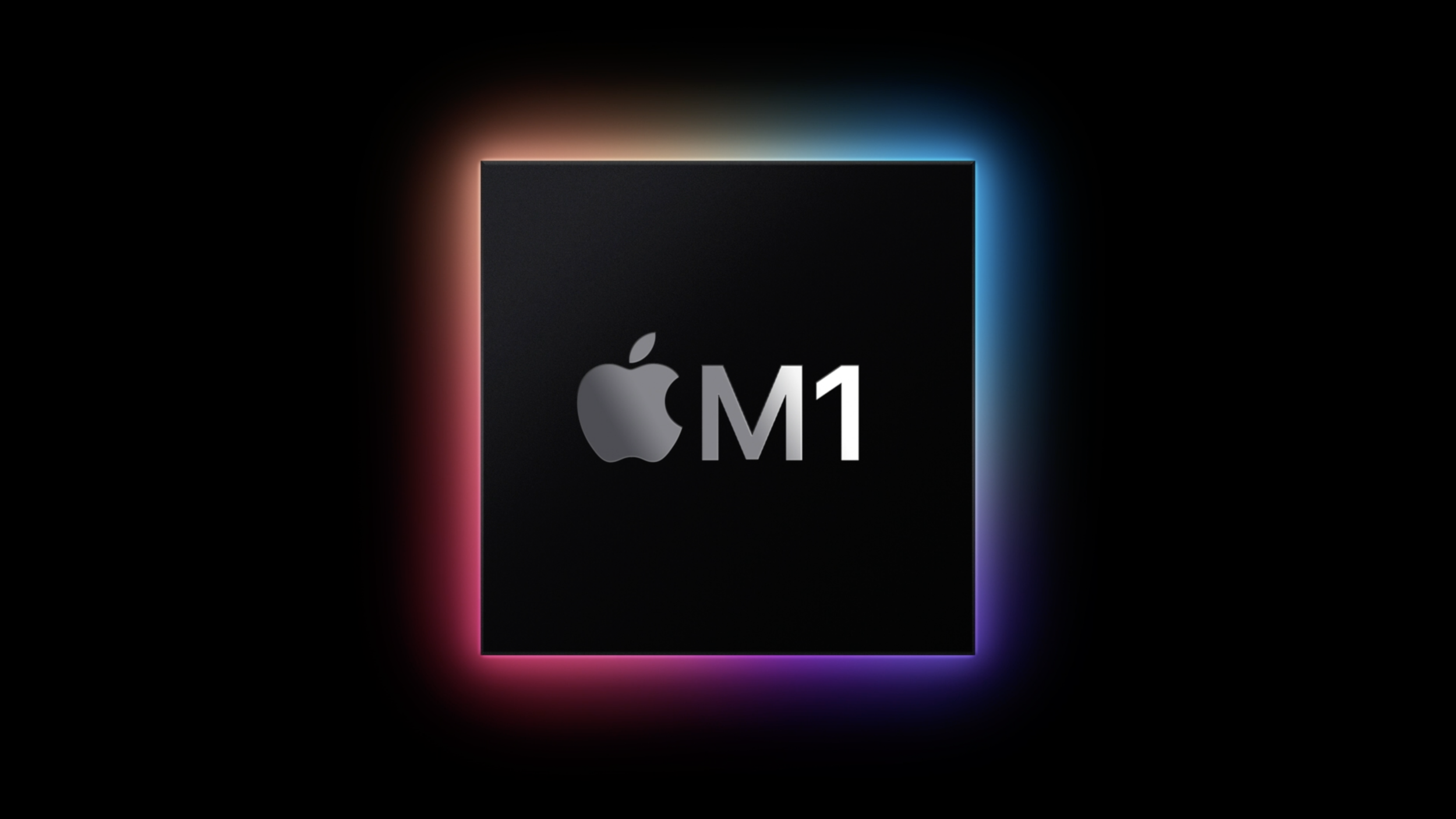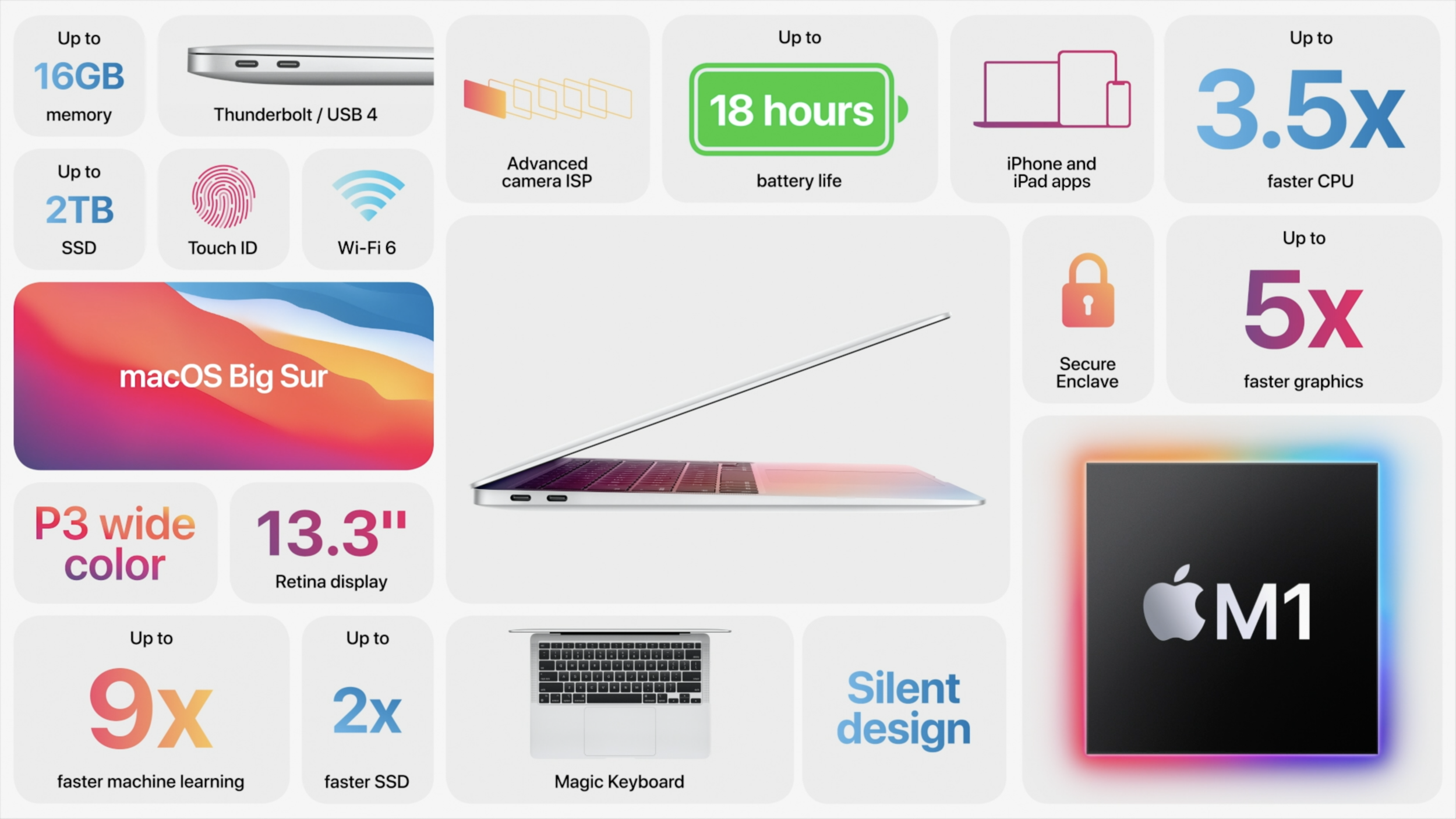The M1 Mac's Are Ridiculous
/I don’t know how else to say it. They really are ridiculous. I, of course, mean that in a good way. What Apple has managed to do with the three products it announced last week is nothing short of extraordinary. Sure, it’s absolutely true that it’s probably not a bad idea to wait and see if they actually live up to the claims Apple made. However, if they do, they’re completely ridiculous.
Apple was widely expected to focus on increased efficiency when it introduced the first Macs featuring their own M1 processor. That was the entire reason for making the switch from Intel’s chips—they simply weren’t getting the kind of gains in efficiency and performance that Apple demanded.
Apple, of course, has had some experience in this area, making chips for the past decade for the iPhone, iPad, Apple Watch, and Apple TV. Really, it’s gotten quite good at it. The A14 chip in the iPhone 12 and 4th-generation iPad Air is the fastest mobile processor, and not by a little.
Still, what Apple did in the MacBook Air, MacBook Pro, and Mac mini is something of an order of magnitude different. Apple’s claims really say it all.
Now, I’ve heard a lot of people say that Apple’s claims—especially on this chart—aren’t particularly helpful. What exactly does Apple mean by “Latest PC laptop chip?” That’s a fair question, and the answer is that we just don’t know. What we do know is that Apple is saying the M1 chip is twice as fast at 10W as that chip.
We also know that when compared to the previous Intel-based Macs, the new versions perform significantly better. The MacBook Air, for example, is supposedly up to three and a half times faster, and gets 50% better battery life. Honestly, if that’s true, I don’t really care what the “latest PC laptop chip” is. What I care about is that the M1 should be better for almost everything I need it to do on a regular basis. Isn’t that what really matters?
Look, I think that it’s worth reserving final judgment until I have a chance to actually use one, which I will next week, but for anyone who was concerned that Apple might not be able to design a chip that competes with Intel, I think we can agree that’s not an issue.
I wrote a piece at Inc.com last week talking about “why” Apple was making this transition. Unlike the switch to Intel, when Apple had to make the switch just to keep up, this is different. Back then, the PowerPC lagged far behind Intels processors, and Macs were slow compared to their PC peers. That’s simply not true now.
From my column:
“Also, the Mac has literally never been more popular. Apple sold more than $9 billion in Macs in the past quarter, a record by more than $1.5 billion. That may pale in comparison with the sheer amount of iPhones the company sells, but where the iPhone may be the most popular device Apple sells, the Mac has always been its soul.
That’s the most important thing to know about this transition. For the past 15 years, the company has had to sell a little piece of its soul to Intel to stay competitive. Now, however, Apple is taking back control over its destiny.
Consider that Apple isn’t doing this because it has to. Unlike 15 years ago, when the company switched to Intel processors, Apple currently has access to the very best processors available on the market. That makes it directly competitive if it just keeps doing what it’s always done. Apple, however, isn’t interested in simply shipping the same Macs.
I think a better way of understanding it is to see what Apple is doing as leveraging everything it has learned, and the ecosystem it has built around the iPhone, to build a better Mac. It won’t be like the iPhone, it’ll be the Mac, only the best version of the Mac. It’ll be the version Apple always intended, even if it had to take a detour for a decade and a half.”
I think, if nothing else, Apple demonstrated this to be true. It’s making this switch because it wants to, and more importantly, because it can. That alone is enough to make me optimistic that they’ll be able to live up to the hype.


